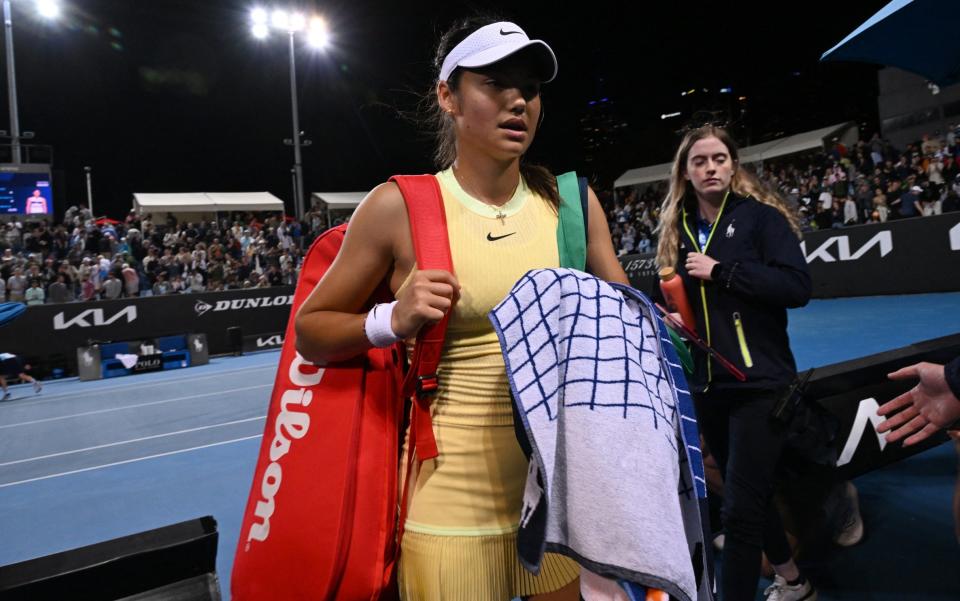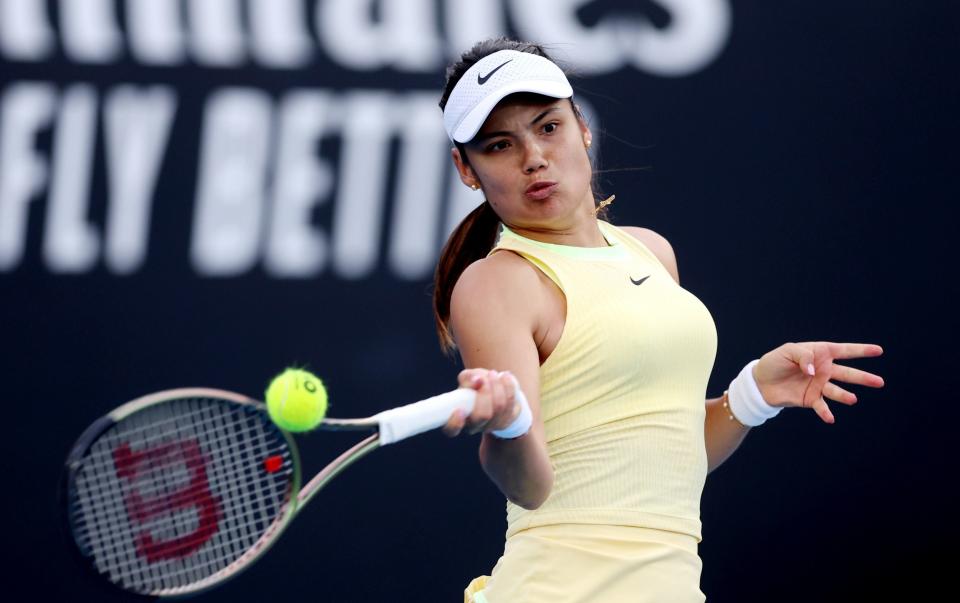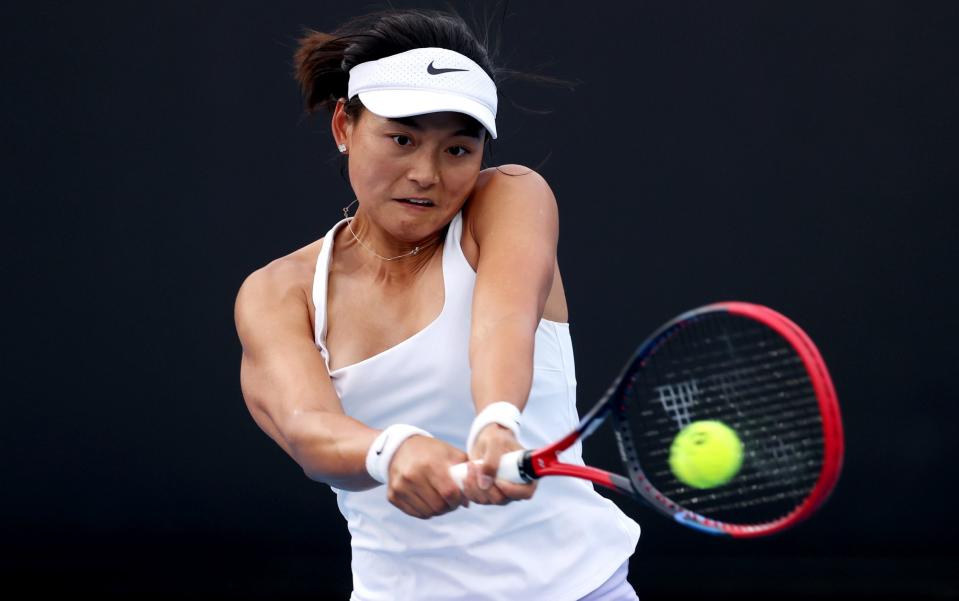Another second-round exit – but this was a big leap forward for Emma Raducanu

Another three-set match, another medical crisis. Were we back to square one with Emma Raducanu’s return from injury?
Thankfully, the answer is no. The doctor arrived only in order to deal with Raducanu’s nausea and vomiting, not to offer strapping on any muscular strain. Indeed, Raducanu later identified the absence of any fitness concerns as the biggest positive of her four-week trip to Australia and New Zealand.
“The encouraging thing is, even though I played two back-to-back three-setters in Auckland, a three-setter today, I didn’t come up with any random niggles,” Raducanu said. “[Today] it was just me throwing up. That’s fine. That’s not normal, but it’s like a one-off.”
Raducanu was moving extremely gingerly between points by the end of her 6-4, 4-6, 6-4 defeat at the hands of the super-solid Chinese player Yafan Wang. Even so, she produced some terrific tennis at times, especially during a second-set period when her forehand caught light.
A feature of this contest was the preponderance of long rallies. There were no fewer than 47 points that lasted more than nine shots. Which may be one reason why Raducanu – who has had precious little matchplay since returning from a nine-month injury layoff – began to look gassed early in the second set.

Around an hour later – which translated to only one set, so slowly did the scoreboard inch along – she called the doctor to the court. But she was not prepared to throw in the towel. In the end, the match lasted 2hr 54min and will give her plenty of useful feedback for the next stage of her comeback.
“[It’s about] tidying up some of the areas, tidying up a bit of technique, also just getting used to playing matches outdoors, as well, because the conditions today were very windy,” Raducanu said. “I think she handled it a lot better, the wind. She junk-balled me. She moonballed me. She gave me a lot of these scrappy little shots, but it worked. Yes, I need to spend more time on tour, spend more time training, and putting good weeks together.
“I’m really looking forward to it because there were doubts whether I would be able to make the Australian Open trip. I think that to be here is a bonus, a good starting point I would say because I started putting good practice sessions together with Nick [Cavaday, her latest coaching appointment].”
Raducanu must have felt that she was looking in a mirror on Thursday, as she took on a neat, fleet-footed opponent with a high ball-toss and an impeccable backhand wing. Both women were trying to construct clever patterns in rallies that came to resemble athletic chess.
It was Wang, though, who had the more resilient physicality. At the end of this marathon encounter, Raducanu tried to drive the ball directly at her opponent from short range, hit the net, and went out of the Australian Open. She is yet to reach the third round of a major since her US Open triumph.

Despite her early exit, Raducanu’s performance was commended by her erstwhile mentor Tim Henman (who was at courtside throughout her run to the 2021 US Open title).
“I think [her] level was excellent when she won that second set,” Henman said on Eurosport’s Australian Open coverage. “You thought that she’d got the momentum, but Wang is a great competitor. [There was] plenty to build on. She’ll be disappointed that she couldn’t find a way to come through that match, but you’d like to think that if there are no injuries, then you don’t get those setbacks and she can build more momentum for the rest of the year.
“In the early part of the third set they had a couple of really long games,” Henman added. “This was when she was down 0-2, and the doctor and physio came on. It was looking worrying at this time and I thought that maybe she was looking for the exit, looking to pull out, but she kept fighting well.”
Raducanu told reporters after the match that she had identified certain areas where playing “five per cent better makes a huge difference”. Chief among these must surely be her forehand, which waxed and waned over the course of the three sets. When she was on, it delivered punch and plenty of sharp cross-court angle. When she was off, it kept floating long.
As Raducanu pointed out, though, Wang came in with vastly more match experience behind her: specifically, 520 recorded matches to her own 142. Coping with a howling wind, dealing with a sickly opponent: these are skills that are best learnt in the heat of competition. Now she just needs to get out there on the match court more regularly. Should she do so, her regular diet of three-set dramas may start to evolve into straightforward wins.

